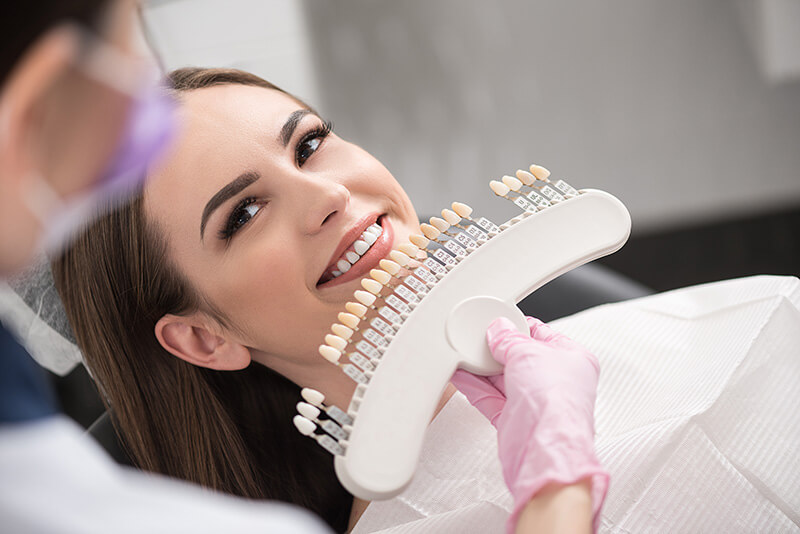Dental Crowns
Are you curious about dental crowns? These tooth coverings (also sometimes referred to as caps) are used to repair broken or weakened teeth. It is a tooth-shaped covering used to restore and strengthen teeth. They can be made from various materials such as metal or porcelain.
What Makes a Dental Crown a Good Treatment Option?
There are various reasons that a crown might be a good treatment option.
- Sign 1 — Your tooth is weakened or broken.
- Sign 2 — Your tooth is heavily filled.
- Sign 3 — Your tooth has lots of cracks, or you grind your teeth heavily.
Metal-free Cosmetic Crowns
Metal-free crowns are an option to consider when having treatment. Their benefits include:
Preserving Your Tooth
Crowns can help prevent a tooth from being extracted. However, there must be enough healthy tooth left to preserve.
Lasting Benefits
Crowns are durable and strong. They are a great alternative to large fillings or extractions.
Natural Looking Results
Porcelain crowns look like your natural teeth. They also give an amazing cosmetic result.
Types of Tooth Crowns
There are two main types of crowns: Metal and porcelain.
Type 1
Porcelain crowns are aesthetically pleasing because they are tooth-colored. They are popular for cosmetic reasons.
Type 2
Metal crowns are usually made of silver or gold and a mix of different alloys. They are very hard wearing and durable.
Dental Crown Procedure
Your dentist will need to prepare your tooth before a crown can be fitted.
- Stage 1 — Your tooth will be examined, then reshaped to an appropriate size. Dental impressions are then taken and a temporary crown is fitted. The impressions will then go to a lab for the crown to be made.
- Stage 2 — Your permanent crown will be fitted at another appointment.
Maintaining Your Restoration
Dental crowns can last for many years. However, a good oral hygiene routine is essential for maintaining your crown’s longevity and health.
When to Replace a Cavity Crown
Sometimes, a crown will need replacing. Usually, a dental crown will last between five and 15 years, but there are other reasons a cavity crown may need replacing — other than wear and tear.
Reason 1: Decay
There may be decay under the crown. This will require removing the existing crown and having a new one placed — if there is enough tooth left to do so.
Reason 2: Pain
The crown may be causing pain and the cause could be that it is improperly placed or broken.
Getting Your Dental Crowns at West Coast Dental
Here at West Coast Dental, our highly-skilled dentists can advise you on the best course of treatment and which type of crown will suit your needs. Set up an appointment today.
Team of Board-certified Specialists
At West Coast Dental, we have a team of highly trained, certified specialists. They are ready to give you the smile you deserve.
Same-day Appointments Available
If you have an emergency, call us for a same-day appointment. We have options to suit your schedule and needs.
Monthly Payment Options That Work for Your Budget
At West Coast Dental, we don’t want financial concerns to prevent you from getting the dental care you need. We offer many payment options including cash, checks, debit cards and most major credit cards. We also offer a special dental discount program through our Dental Alliance Discount Plan and financing through CareCredit and Dental Alliance Financing. Financing ensures you can get the dental services you need and make monthly payments that work for your budget.
We Accept Most Insurances
Most insurance plans are accepted at West Coast Dental. We also have accessible payment options and discounts to make getting the dental care you need accessible and affordable.




